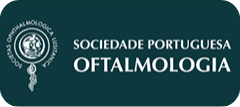Pseudotumor Cerebri in a Child with Turner Syndrome Receiving Recombinant Human Growth Hormone
DOI:
https://doi.org/10.48560/rspo.23911Keywords:
Child, Human Growth Hormone/adverse effects, Human Growth Hormone/ therapeutic use, Intracranial Hypertension/chemically induced, Turner Syndrome/drug therapyAbstract
We report for the first time in a Portuguese child a case of intracranial hypertension (ICH) in a girl with Turner syndrome under hormonal therapy with recombinant human growth hormone (rhGH). A fourteen-year-old child with Turner syndrome medicated with estrogen and rhGH 1.6 mg/ daily for 3 years followed regularly at our Pediatric Department presented with diminished vision. Myopia was diagnosed and corrected, and her best corrected visual acuity was 10/10 bilaterally. Funduscopic exam showed bilateral hyperemic optic nerve edema, confirmed by optical coherence tomography (OCT). Cranial computer scan tomography (CT) and head magnetic resonance imaging (MRI) did not show any alterations. The child was then referred to Neuropediatrics Department. Lumbar puncture revealed elevated intracranial pressure, confirming the ICH diagnosis. rhGH was discontinued. ICH is a rare condition in the pediatric population. There is a causal relationship between rhGH therapy, Turner syndrome and ICH development. To our knowledge this is the first Portuguese case report of this association. As ICH could potentially lead to irreversible vision loss, children receiving rhGH should have a routine follow-up by ophthalmology.
Downloads
References
Wall M, Corbett JJ. Revised diagnostic criteria for the pseudotumor cerebri syndrome in adults and children. Neurology. 2014;83:198-99. doi:10.1212/WNL.0000000000000559
Darendeliler F, Karagiannis G, Wilton P. Headache, Idiopathic Intracranial Hypertension and Slipped Capital Femoral Epiphysis during Growth Hormone Treatment: A Safety Update from the KIGS Database. Horm Res. 2007;68:41- 47. doi: 10.1159/000110474
Loukianou E, Tasiopoulou A, Demosthenous C, Brouzas D. Pseudotumor Cerebri in a Child with Idiopathic Growth Hormone Insufficiency Two Months after Initiation of Recombinant Human Growth Hormone Treatment. Case Rep Ophthalmol Med. 2016;2016:1-5. doi:10.1155/2016/4756894
Richmond E, Rogol AD. Current indications for growth hormone therapy for children and adolescents. Endocr Dev. 2010;18:92-108. doi:10.1159/000316130
Babikian P, Corbett J, Bell W. Idiopathic Intracranial Hypertension in Children: The Iowa Experience. J Child Neurol. 1994;9:144-9. doi:10.1177/088307389400900208
Sybert VP, Bird TD, Salk DJ. Pseudotumour cerebri and the Turner syndrome. J Neurol Neurosurg Psychiatry. 1985;48:164-6. doi:10.1136/jnnp.48.2.164
Radhakrishnan K, Kurland LT, O’fallon WM, Ahlskog JE, Cross SA. Idiopathic Intracranial Hypertension (Pseudotumor Cerebri): Descriptive Epidemiology in Rochester, Minn, 1976 to 1990. Arch Neurol. 1993;50:78-80. doi:10.1001/archneur.1993.00540010072020
Obinata K, Kamata A, Kinoshita K, Nakazawa T, Haruna H, Hosaka A, et al. Prolonged intracranial hypertension after recombinant growth hormone therapy due to impaired CSF absorption. Clin Pediatr Endocrinol. 2010;19:39-44. doi:10.1297/cpe.19.39
Besch D, Makowski C, Steinborn MM, Bonfig W, Sadowski B. Visual loss without headache in children with pseudotumor cerebri and growth hormone treatment. Neuropediatrics. 2013;44:203-7. doi:10.1055/s-0032-1330855
Spiliotis BE. Recombinant human growth hormone in the treatment of Turner syndrome. Ther Clin Risk Manag. 2008;4:1177-83. doi:10.2147/tcrm.s1440
Koller EA, Stadel B V, Malozowski SN. Papilledema in 15 renally compromised patients treated with growth hormone. Pediatr Nephrol. 1997;11:451-4. doi:10.1007/s004670050315
Malozowski S, Tanner LA, Wysowski DK, Fleming GA, Stadel BV. Benign intracranial hypertension in children with growth hormone deficiency treated with growth hormone. J Pediatr. 1995;126:996-9. doi:10.1016/S0022-3476(95)70232-6
Tornese G, Tonini G, Patarino F, Parentin F, Marchetti F. Double adverse drug reaction: Recombinant human growth hormone and idiopathic intracranial hypertension - Acetazolamide and metabolic acidosis: A case report. Cases J. 2009;;2:6534. doi:10.4076/1757-1626-2-6534
Francois I, Casteels I, Silberstein J, Casaer P, De Zegher F. Empty sella, growth hormone deficiency and pseudotumour cerebri: Effect of initiation, withdrawal and resumption of growth hormone therapy. Eur J Pediatr. 1996;156:69-70. doi:10.1007/s004310050556
Dhungana S, Sharrack B, Woodroofe N. Idiopathic intracranial hypertension. Acta Neurol Scand. 2010;121:71-82. doi:10.1111/j.1600-0404.2009.01172.x
Bechtold S, Butenandt O, Meidert A, Boergen KP, Schmidt H. Persistent papilledema in Ullrich-Turner syndrome treated with growth hormone. Clin Pediatr. 2001;40:629-31. doi:10.1177/000992280104001109.
Downloads
Published
How to Cite
Issue
Section
License
Do not forget to download the Authorship responsibility statement/Authorization for Publication and Conflict of Interest.
The article can only be submitted with these two documents.
To obtain the Authorship responsibility statement/Authorization for Publication file, click here.
To obtain the Conflict of Interest file (ICMJE template), click here





